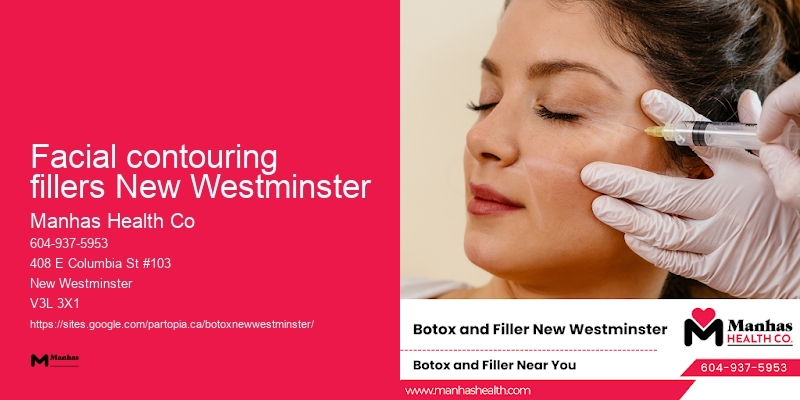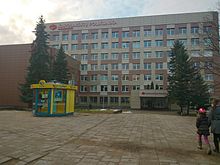

It's your beauty, refined. Learn more about Trusted New Westminster Botox and Filler specialists here. It's clear that more individuals are seeking ways to enhance their appearance without going under the knife, aiming for results that bring out their best features while maintaining a natural look. Learn more about Facial contouring fillers New Westminster here Before any treatment, we conduct a thorough consultation to understand your medical history and discuss potential risks and benefits, ensuring that you're well-informed and confident in your decision. At Manhas Health Co., you'll find an expert team dedicated to crafting personalized treatment plans that align with your unique beauty goals. They're dedicated to ensuring you not only look great but also feel supported throughout your entire healing process.
Plus, with minimal side effects and no recovery time needed, you can return to your daily activities immediately after the treatment. Botulinum F toxin It temporarily paralyzes muscles, smoothing out those areas for a more youthful appearance. Factors like your metabolism, lifestyle, and the area treated will influence how often you'll need maintenance sessions.
This helps your specialist accurately assess your natural skin condition and apply treatments directly without any barriers. After your dermal filler procedure at Manhas Health Co, proper post-treatment care is crucial to optimize healing and maintain the results. Meanwhile, fillers can be strategically placed in areas like the cheeks, lips, and nasolabial folds to restore lost volume and enhance facial symmetry. They check in, offer advice, and really make sure you're happy with the results.
New Westminster (colloquially known as New West) is a city in the Lower Mainland region of British Columbia, Canada, and a member municipality of the Metro Vancouver Regional District. It was founded by Major-General Richard Moody as the capital of the Colony of British Columbia in 1858 and continued in that role until the Mainland and Island colonies were merged in 1866. It was the British Columbia Mainland's largest city from that year until it was passed in population by Vancouver during the first decade of the 20th century.
Each treatment begins with a personalized consultation, where you'll discuss your aesthetic goals and learn about the best options for achieving them. From special pricing on botox units to bundle deals on fillers, we're committed to providing value without compromising on quality.


Firstly, when performed by a certified professional at Manhas Health Co., these treatments are safe. At Manhas Health Co, you're not just getting a routine procedure; you're experiencing a tailor-made treatment designed to enhance your natural beauty. Type A botulinum toxin This isn't about transforming into someone else; it's about being the best version of yourself. They're FDA-approved and have a long track record of success.
You're probably seeking a solution to soften wrinkles and fine lines, and that's precisely what their Botox service aims to accomplish. It's this evidence of effectiveness that has built their reputation as the go-to clinic in Facial contouring fillers New Westminster. Botulinum toxin D Now, I wonder why I waited so long. You're not just undergoing a cosmetic enhancement; you're experiencing a service where your well-being is the top priority. Whether it's the restoration of youthful contours, smoothing of crow's feet, or plumping of the lips, the outcomes speak volumes.
They believe in an iterative process, where adjustments are made based on your feedback and the evolving nature of your skin. Whether you're looking to soften laugh lines, restore cheek volume, or refine your lip shape, there's a filler that can achieve your goals, ensuring your results look natural and complement your unique features. Behind the scenes, our treatment rooms are equipped with the latest in medical aesthetics technology. They're there to answer any questions you might've about the procedures, helping you feel informed and at ease before your visit.
Botox focuses on muscle activity, while fillers target volume loss. Only that you look and feel fantastic. Together, they offer a comprehensive approach to anti-aging, allowing you to tackle a wide range of concerns from fine lines to deep folds. They're there to guide you every step of the way.
Moreover, Manhas Health Co utilizes the latest advancements in aesthetic medicine, offering you state-of-the-art treatments that promise not just immediate but also lasting results. You'll find their approach is all about balance and harmony. They're not just sticking to the basics; they're pioneering in the field, integrating the latest advancements to redefine aesthetic procedures. They're not just about enhancing your looks; they're deeply invested in uplifting the community that supports them.


You'll find stories of individuals who've regained their confidence, looking as vibrant on the outside as they feel inside. Let's embark on this journey together, transforming your skin into a reflection of your inner youth and vitality. The process was comfortable, the staff was supportive, and the outcome was beyond what they'd hoped for. High-intensity activities can increase blood flow to the face, potentially diminishing the treatment's effectiveness.
You'll find the discomfort minimal, with most clients describing it as a quick, mild pinch. When you receive a Botox injection, it blocks certain chemical signals from nerves, primarily those that cause muscles to contract. Botox can be used to target areas like the forehead and around the eyes where expression lines are prominent.
You're not just getting a treatment; you're investing in a version of yourself that feels refreshed and confident.
You'll find that their professionalism and skill are unmatched. Our staff is rigorously trained in both the technical aspects of Botox and filler applications and the nuances of patient care, making sure you feel informed and at ease throughout the process. You're probably wondering how long it takes to see results and how often you'll need touch-ups. Manhas Health Co.


A clinic (or outpatient clinic or ambulatory care clinic) is a health facility that is primarily focused on the care of outpatients. Clinics can be privately operated or publicly managed and funded. They typically cover the primary care needs of populations in local communities, in contrast to larger hospitals which offer more specialized treatments and admit inpatients for overnight stays.
Most commonly, the English word clinic refers to a general practice, run by one or more general practitioners offering small therapeutic treatments, but it can also mean a specialist clinic. Some clinics retain the name "clinic" even while growing into institutions as large as major hospitals or becoming associated with a hospital or medical school.

The word clinic derives from Ancient Greek κλίνειν klinein meaning to slope, lean or recline. Hence κλίνη klinē is a couch or bed and κλινικός klinikos is a physician who visits his patients in their beds.[1] In Latin, this became clīnicus.[2][3]
An early use of the word clinic was "one who receives baptism on a sick bed".[4]

Clinics are often associated with a general medical practice run by one or several general practitioners. Other types of clinics are run by the type of specialist associated with that type: physical therapy clinics by physiotherapists and psychology clinics by clinical psychologists, and so on for each health profession. (This can even hold true for certain services outside the medical field: for example, legal clinics are run by lawyers.)
Some clinics are operated in-house by employers, government organizations, or hospitals, and some clinical services are outsourced to private corporations which specialize in providing health services. In China, for example, owners of such clinics do not have formal medical education. There were 659,596 village clinics in China in 2011.[5]
Health care in India, China, Russia and Africa is provided to those regions' vast rural areas by mobile health clinics or roadside dispensaries, some of which integrate traditional medicine. In India these traditional clinics provide ayurvedic medicine and unani herbal medical practice. In each of these countries, traditional medicine tends to be a hereditary practice.

The function of clinics differs from country to country. For instance, a local general practice run by a single general practitioner provides primary health care and is usually run as a for-profit business by the owner, whereas a government-run specialist clinic may provide subsidized or specialized[dubious – discuss] health care.
Some clinics serve as a place for people with injuries or illnesses to be seen by a triage nurse or other health worker. In these clinics, the injury or illness may not be serious enough to require a visit to an emergency room (ER), but the person can be transferred to one if needed.
Treatment at these clinics is often less expensive than it would be at a casualty department. Also, unlike an ER these clinics are often not open on a 24/7/365 basis. They sometimes have access to diagnostic equipment such as X-ray machines, especially if the clinic is part of a larger facility. Doctors at such clinics can often refer patients to specialists if the need arises.[6]

Large outpatient clinics vary in size, but can be as large as hospitals.
Typical large outpatient clinics house general medical practitioners (GPs) such as doctors and nurses to provide ambulatory care and some acute care services but lack the major surgical and pre- and post-operative care facilities commonly associated with hospitals.

Besides GPs, if a clinic is a polyclinic, it can house outpatient departments of some medical specialties, such as gynecology, dermatology, ophthalmology, otolaryngology, neurology, pulmonology, cardiology, and endocrinology. In some university cities, polyclinics contain outpatient departments for the entire teaching hospital in one building.

Large outpatient clinics are a common type of healthcare facility in many countries, including France, Germany (long tradition), Switzerland, and most of the countries of Central and Eastern Europe (often using a mixed Soviet-German model), as well as in former Soviet republics such as Russia and Ukraine;[7] and in many countries across Asia and Africa.[8]
In Europe, especially in the Central and Eastern Europe, bigger outpatient health centers, commonly in cities and towns, are called policlinics (derived from the word polis, not from poly-).
Recent[when?] Russian governments have attempted to replace the policlinic model introduced during Soviet times with a more western model. However, this has failed.[9]
In the Czech Republic, many policlinics were privatized or leasehold and decentralized in the post-communist era: some of them are just lessors and coordinators of a healthcare provided by private doctor's offices in the policlinic building.[10]
India has also set up huge numbers of polyclinics for former defense personnel. The network envisages 426 polyclinics in 343 districts of the country which will benefit about 33 lakh (3.3 million) ex-servicemen residing in remote and far-flung areas.[11]
Policlinics are also the backbone of Cuba's primary care system and have been credited with a role in improving that nation's health indicators.[12]


Providing health services through mobile clinics provides accessible healthcare services to these remote areas that have yet to make their way in the politicized space. For example, mobile clinics have proved helpful in dealing with new settlement patterns in Costa Rica. Before foreign aid organizations or the state government became involved in healthcare, Costa Rica's people managed their own health maintenance and protection.[13] People relied on various socio-cultural adaptations and remedies to prevent illnesses, such as personal hygiene and settlement patterns.[13] When new settlements that sprang up along the coast became "artificial" communities, and due to lack of traditional home healing practices here, alternative methods such as mobile clinics had to be implemented in these communities for the protection and prevention of diseases.[13]
A study done in rural Namibia revealed the health changes of orphans, vulnerable children and non-vulnerable children (OVC) visiting a mobile clinic where health facilities are far from the remote villages.[14] Over 6 months, information on immunization status, diagnosis of anemia, skin and intestinal disorders, nutrition, dental disorders was collected and showed that visits to mobile clinics improved the overall health of children that visited regularly. It concluded that specified "planning of these programs in areas with similarly identified barriers may help correct the health disparities among Namibian OVC and could be a first step in improving child morbidity and mortality in difficult-to-reach rural areas."[14]

Food supplementation in the context of routine mobile clinic visits also shows to have improved the nutritional status of children, and it needs further exploration as a way to reduce childhood malnutrition in resource-scarce areas. A cross-sectional study focussed on comparing acute and chronic undernutrition rates prior to and after a food-supplementation program as an adjunct to routine health care for children of migrant workers residing in rural communities in the Dominican Republic.[15] Rates of chronic undernutrition decreased from 33% to 18% after the initiation of the food-supplementation program and shows that the community members attending the mobile clinics are not just passively receiving the information but are incorporating it and helping keep their children nourished.[15]

There are many different types of clinics providing outpatient services. Such clinics may be public (government-funded) or private medical practices.
cite book: |website= ignored (help)
In general, a filler is something that is used to fill gaps. Specialized meanings include:
To ensure their Botox and fillers are ethically sourced and sustainable, they vet suppliers rigorously, demanding proof of ethical practices and sustainability. They also stay updated on industry standards to keep their promise to you.
You'll find that most health insurance or medical plans don't cover Botox and filler treatments since they're usually considered cosmetic procedures. It's best to check with your provider for any specific coverage details.
Yes, you can get services tailored specifically for men at Manhas Health Co. They understand men's unique aesthetic goals and offer customized Botox and filler treatments to meet your individual needs and preferences.